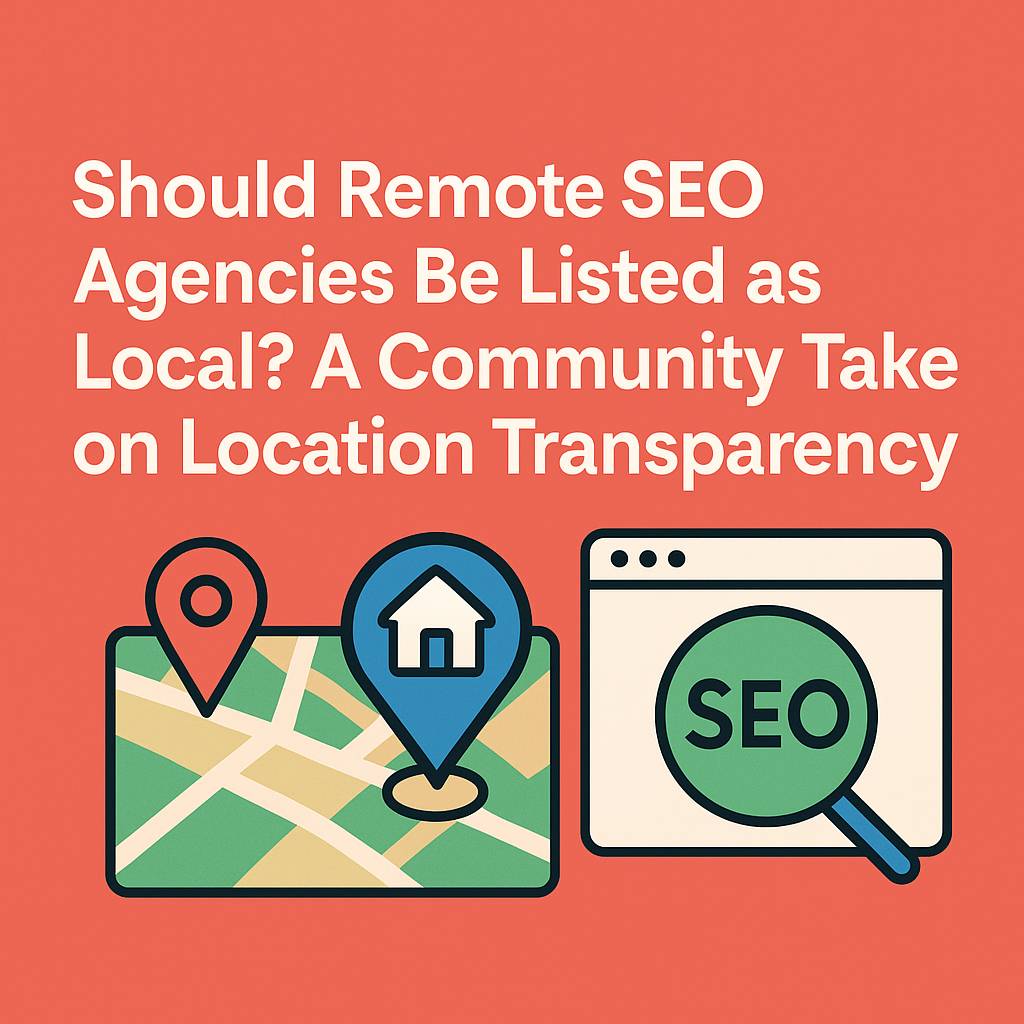Introduction
As the SEO industry embraces remote work, an important question is emerging: Should fully remote SEO agencies be allowed to list themselves as local businesses in directories? This debate isn’t just theoretical—it’s actively shaping how digital marketing directories serve users looking for local expertise. Through a recent community discussion, several SEO professionals shared their thoughts on balancing transparency, trust, and relevance in directory listings.
1. The Problem with Virtual Offices and Misleading Listings
Many remote agencies list PO boxes or virtual offices in high-demand cities like New York or Los Angeles to boost their visibility. But this can mislead users who are genuinely seeking local professionals. One concern is fairness—especially when those running the agency are based in entirely different countries.
2. The Case for Using the Owner’s Actual Location
Some professionals believe using the city of the founder or owner offers a more honest representation. Even in remote setups, the base location of the leadership can influence how the business operates culturally, legally, and logistically.
“We used the owner’s city as the location. It just felt more honest.”
3. Adding a Remote or Hybrid Category
A common suggestion was to introduce a dedicated ‘Remote Agencies’ category. This helps distinguish agencies that operate globally without misleading users about physical proximity. Some even recommended segmenting these remote listings by region—such as by continent or country—to better match user intent.
“Different categories of remote—by country or continent—could strike a good balance between accuracy and discoverability.”
4. Thresholds and Verification for Local Listings
To maintain integrity in local listings, community members proposed requiring identity verification such as a driver’s license or video confirmation. This could ensure agencies claiming to be from a specific city genuinely have a presence there.
“If they provide ID, they can be listed in that city. If not, they go to the country page only.”
This approach adds friction but may help prevent manipulation and improve user trust in the directory.
5. Letting the User Decide: Local vs Remote Filters
One forward-thinking solution is to give users a choice: “Are you looking for a local agency, or are you open to remote partners?” This empowers the user to filter results based on their actual need, whether that’s in-person collaboration or simply timezone alignment.
“Tagging companies as remote and asking the searcher what they prefer might be the way forward.”
Conclusion: Toward a More Transparent SEO Directory System
As more agencies go remote, the lines between local and global continue to blur. What’s clear from this community conversation is that transparency and user-centric design must be at the heart of any directory system. Whether it’s introducing remote tags, requiring light verification, or asking users for their preferences—there’s room to make SEO directories more honest and useful for everyone.
Call to Action
Are you managing a remote SEO agency? How do you handle location listings in directories? Share your approach and help shape best practices for the industry.



